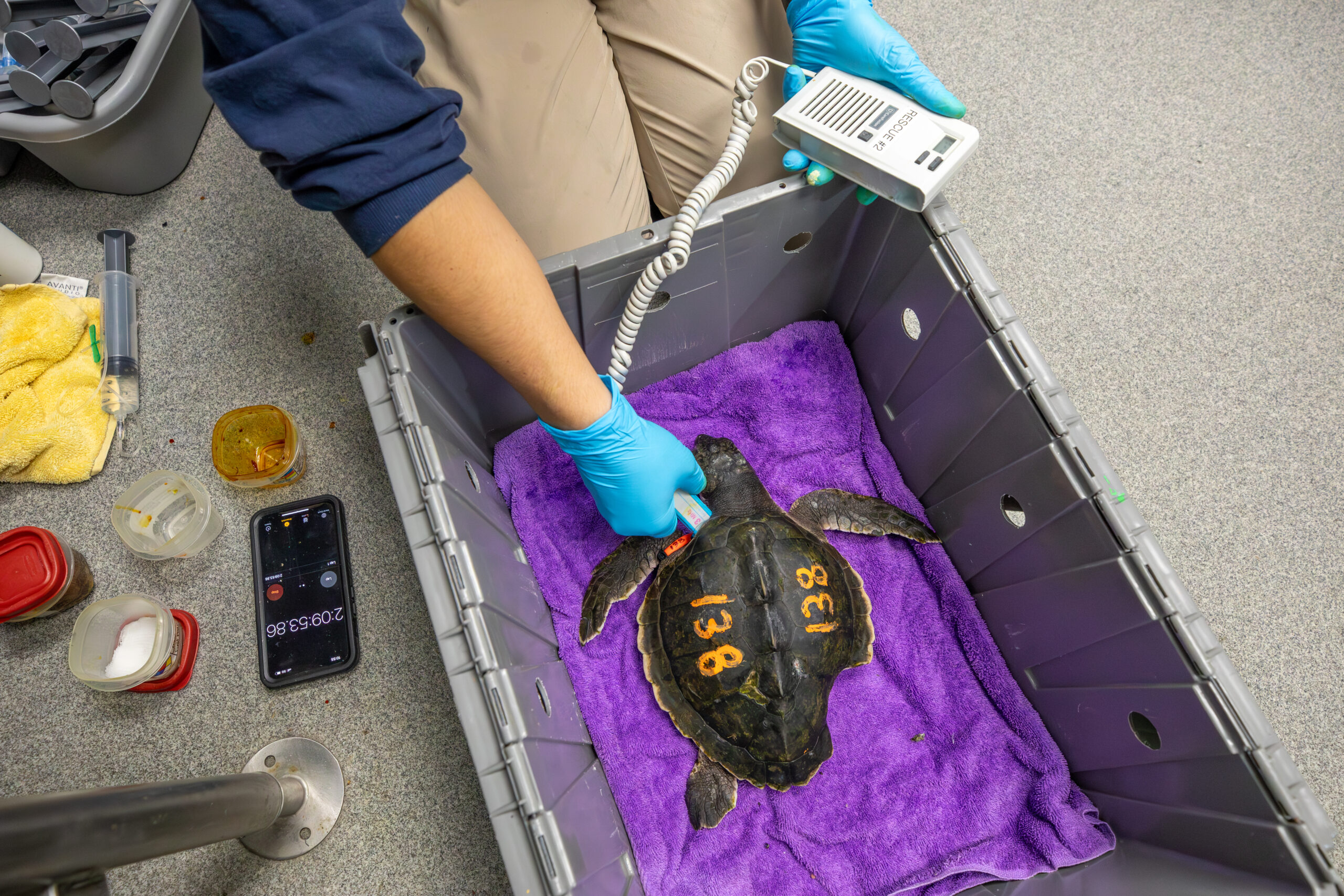
QUINCY, MASS. (Nov. 20, 2025) – As winds increase and temperatures drop, the New England Aquarium is treating more than 200 hypothermic sea turtles that have washed ashore on Massachusetts beaches in critical condition.
**PHOTOS AND VIDEO AVAILABLE HERE WITH CREDIT TO NEW ENGLAND AQUARIUM**
The annual stranding season has ramped up quickly, with 207 live sea turtles arriving at the Aquarium’s Sea Turtle Hospital in Quincy, Mass., since Nov. 7. Staff and volunteers from Massachusetts Audubon Wellfleet Bay Wildlife Sanctuary have been searching for cold-stunned turtles on the beaches along Cape Cod Bay and transporting the animals to the Aquarium’s facility, where they are gradually warmed and receive care for life-threatening medical conditions resulting from hypothermia and the inability to feed or swim. With Cape Cod Bay at 50.9 degrees Fahrenheit, the season is just beginning.
“The sea turtle stranding season is off to a very quick start. With over 200 turtles arriving at our facility in such a short time—and so early in the season—we need to pace ourselves for likely big numbers this year. Thanks to decades of doing this conservation work, the New England Aquarium is well positioned to ensure high-quality care for the weeks and months ahead,” said Adam Kennedy, the Aquarium’s Director of Rescue and Rehabilitation.
Upon arrival at the Aquarium’s Sea Turtle Hospital, turtles receive a physical exam, heart rate and respiration assessment, wound care as needed, and a trial swim. Turtles also get X-rays to assess their lung condition and look for any bone fractures. Critically endangered Kemp’s ridleys, the majority of the patients, and green sea turtles receive antibiotics. They also receive replacement fluids as prescribed by veterinarians.
“Many of these sea turtles suffer from chronic medical conditions—including pneumonia, bone infection, and sepsis—and may require months of treatment before they can be released into the ocean, which is always our ultimate goal,” said Dr. Melissa Joblon, Director of Animal Health at the Aquarium.
Each fall and early winter, hundreds of cold-stunned sea turtles wash up on the beaches of Cape Cod. Because of the rapidly changing water temperature and wind pattern, many turtles cannot escape the hook-like area of Cape Cod Bay and become hypothermic. As the Aquarium’s Sea Turtle Hospital reaches full capacity, the team is working closely with the National Oceanic and Atmospheric Administration’s (NOAA) Fisheries Service to transfer turtles to partner organizations to continue rehabilitation and make room for new arrivals at the Aquarium’s facility. Just this week, the global nonprofit organization Greater Good Charities flew 35 turtles to two facilities in North Carolina, Karen Beasley Sea Turtle Rescue and Rehabilitation Center and NC Aquarium at Pine Knoll Shores. The most seriously ill turtles will remain in New England Aquarium care, where many will complete their full rehabilitation process before being released back into the ocean in the spring and summer months.
MEDIA CONTACT: Pam Bechtold Snyder—617-686-5068; psnyder@neaq.org
